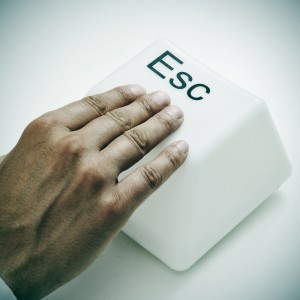
Social functioning is defined as the degree to which a person is able to fulfill different roles in social environments, such as home, work or relationships (Bosc, 2000). There is consistent evidence that depressed patients display considerable social functioning impairments, which add significantly to the burden of depression.
In a recent article published in Psychological Medicine, Renner and collaborators conducted a meta-analysis with the goal of summarising the effect of psychotherapy for depression on social functioning improvements. They noted that treatment outcome studies for depression had usually focused on the effects of treatment of symptoms, rather than social functioning, and that no meta-analysis so far had evaluated the effect of psychotherapy on social functioning in depression.
Methods
The authors included randomised controlled trials in adults, comparing psychological interventions for depression with a control intervention (waiting list, treatment as usual, placebo). Only studies that defined depression according to a diagnostic interview or by elevated levels on validated self-report questionnaires were included. Social functioning was evaluated with instruments that had the aim of assessing functioning in one of the following social domains: interpersonal contact, partner relationship, work or study, and leisure or recreation. Studies specifically focused on marital adjustment or on global functioning were not included.
Included studies were assessed for methodological quality, using four criteria of the risk of bias assessment tool developed by Cochrane Collaboration (adequate sequence generation, allocation concealment, blinding of outcome assessors incomplete outcome date).
Effect sizes (ES) were calculated for each comparison between psychotherapy and a control group at post-test (standardized mean difference) and then transformed in Hedges’ g in order to adjust for bias due to small size (.20, .50 and .80 correspond to small, moderate and respectively large ES). Separate effect sizes were calculated for depression and social functioning.

People with depression can sometimes struggle more than most with family life, social activities and workplace pressures
Results
31 studies met the inclusion criteria and were included in the meta-analysis.
- The quality of the included studies was fairly low, with only 8 out of 31 meeting all four quality criteria.
- The effect of psychotherapy on social functioning was small to medium
- The mean ES (g) was 0.46 (95% CI 0.32 to 0.60)
- However, the authors also report considerable heterogeneity and evidence of publication bias for this comparison
- With adjustment for publication bias, the overall ES decreased to 0.40 (95% CI 0.25 to 0.55)
- The authors also computed the mean ES for depression symptom severity
- Which was moderate (g= 0.58, 95% CI 0.44 to 0.72)
- And decreased with the adjustment of publication bias to 0.43 (95% CI 0.28 to 0.58)
- Additionally, effect sizes were smaller in studies comparing psychotherapy with treatment as usual than in those comparing it to other control groups
- In contrast, larger effect sizes were seen in:
- Studies using individual treatment compared to those using a group delivery format
- Studies conducted in the United States compared to those conducted in other countries
- Studies that used clinical rating scales in contrast to studies that were based on self-report instruments for assessing social functioning
- The authors also grouped psychotherapies into two more general clusters: cognitive-behavioral and psychodynamic-interpersonal:
- Studies that compared CBT to control yielded comparative effect sizes to those comparing psychodynamic-interpersonal therapies to control.
- There was a significant positive association between effect sizes for social functioning and those for depression:
- With each increase by 1 in the effect sizes for depressive symptom severity, the effect sizes for social functioning also increased by 0.71
- A dose response was reported, with more sessions being associated with higher ESs:
- For each increase in five sessions, an increase of 0.15 in the ES for social functioning was evidenced

Overall, psychotherapies had a small to medium effect on social functioning in people with depression
Conclusions
The authors concluded that:
Psychotherapy for depression has small to moderate positive effects on the social functioning of depressed patients and no differences between different types of psychotherapies emerged.
However they also emphasize that:
Compared to the total number of RCTs on different types of psychotherapies for depression, the number of studies that included measures of social functioning as treatment outcome was relatively small, which reflects the current focus of treatment outcome studies on depressive symptom severity rather than functioning.
Another important conclusion regards the need to further clarify the temporal relationship between social functioning and depressive symptoms, by assessing both outcomes repeatedly during treatment.
Limitations
- The methodological quality of many of the studies included in the meta-analysis was fairly low, which might have led to an overestimation of effect sizes
- The number of included studies was relatively small and this prevented conducting some types of comparison analyses, such as contrasting effect sizes for specific forms of psychotherapies (other than cognitive-behavioral therapy and interpersonal psychotherapy)
- Given the small number of studies, comparisons between different types of psychotherapies were not based on direct comparisons, but on separate sets of data
- The authors looked at overall improvements in social functioning, rather than domain-specific ones, and it is possible that some aspects of social functioning might be more responsive to psychotherapy than others
Links
Renner F, Cuijpers P, Huibers MJH. The effect of psychotherapy for depression on improvements in social functioning: a meta-analysis. Psychol Med 2014, 1–14. doi:10.1017/S0033291713003152 [PubMed abstract]
Bosc, M., 2000. Assessment of social functioning in depression. Compr Psychiatry 41, 63–69. [PubMed abstract]



Psychotherapy for social functioning in depression: insufficient good quality research into an overlooked issu… http://t.co/6SU2cmZAaQ
@Mental_Elf @cprjournal interesting read bt too small study.My practice shows clients w/dprssn respond to gd therapy w/gd rship w/therapist
. @Zia_Julia highlights a recent meta-analysis about the effects of psychotherapy on social functioning in depression http://t.co/sBlqAGWlXP
Mental Elf: Psychotherapy for social functioning in depression: insufficient good quality research into an… http://t.co/czDCDThpoM
Psychotherapies have a small to medium effect on social functioning in people with depression, says new meta-analysis http://t.co/sBlqAGWlXP
@Mental_Elf @gb5309 Interesting..
Los efectos en el funcionamiento de las psicoterapias para la depresión han sido poco y mal estudiados http://t.co/ldmQgFA8f2
Can psychotherapy improve social functioning for people with depression? http://t.co/sBlqAGWlXP
Psychotherapy for social functioning in depression: insufficient good quality research into an overlooked issue http://t.co/H8jdBUwCkh via
RT @Mental_Elf: Psychotherapy for depression RCTs need to focus on social functioning as well as symptom severity http://t.co/sBlqAGWlXP
Don’t miss: Psychotherapy for social functioning in depression: insufficient research into an overlooked issue http://t.co/sBlqAGWlXP
RT @Mental_Elf: #Psychotherapy for social functioning in #depression: insufficient research into an overlooked issue http://t.co/pXQtallOBL
Lack of research into psychotherapy for social functioning in depression? http://t.co/RQ2BGl5bbx via @Mental_Elf #daw2014 #ournep
Psychotherapy for social functioning in depression: insufficient good quality research http://t.co/9e2vUMMQ17 via @sharethis
Psychotherapy for social functioning in depression: insufficient good quality research into an… http://t.co/3TP2FupUyH